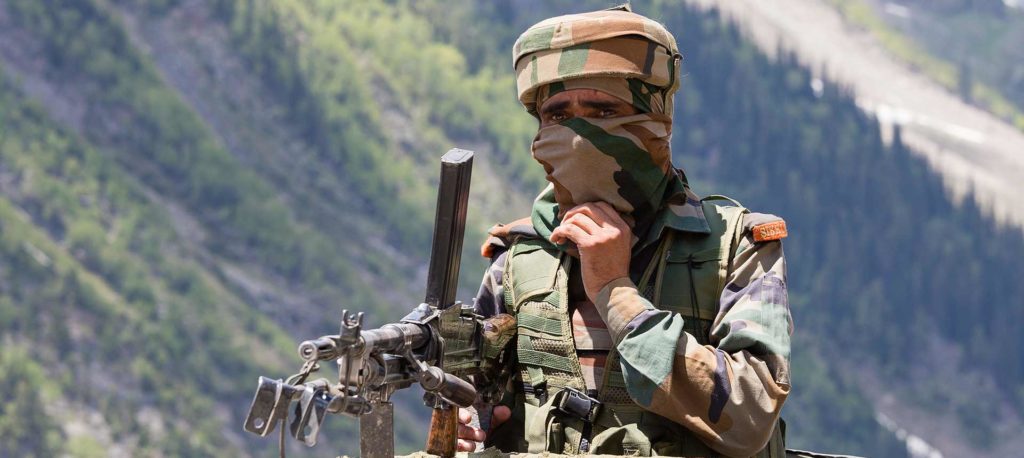Although I live in Germany now, I retain strong connections with my rural roots. Recently, I traveled to my ancestral village in Maharashtra, the western state in India of which Mumbai is the capital. Pune, a fast-rising information technology (IT) city is about 300 kilometers away from my village.
On my way, I saw hoardings welcoming G20 delegates for a meeting. At my village, which has a population of a little over 500, people wanted to discuss G20 with me. This surprised me and, on my return, I can now see what is going on.
Indian Prime Minister Narendra Modi has decided to host hundreds of delegates coming from G20 nations in 50 locations across the country. Only the final G20 Summit will be held in New Delhi. This is a break from precedent. In the past, international meetings were largely conducted in New Delhi, the British-built colonial capital. Its anglicized elite dominated discourse on India’s foreign policy and strategic affairs. That has changed completely. Modi has democratized discourse in a young and dynamic nation.
The G20 comprises 19 countries and the EU. Today, G20 delegates are meeting in Srinagar, the capital of Kashmir. Since 1989, Kashmir’s economy imploded for three decades because of a Pakistan-fueled insurgency. India has subsidized this beautiful part of the world. In 2019, India abrogated Article 370 that kept Kashmir locked out of the national economy. Western media like The New York Times and The Guardian criticized Indian actions without understanding either the historical context or economic implications of the decision.
Four years later, this decision has led to more peace and greater prosperity in Kashmir. The G20 meeting that kicks off in Kashmir today will shine the light on the beauty of this fabled land. China is boycotting the meeting. Turkey, Egypt and Saudi Arabia are following suit but delegates from the other 16 members are attending. They will see Kashmir with their own eyes. Both national and international media will cover the visit of G20 delegates. This will give tourism, a historical mainstay of the economy, a shot in the arm. The G20 meeting will also increase investment in Kashmir.
Move to Peace in Paradise
For good reason, Kashmir is known as paradise on earth. For decades, Indian couples went on their honeymoons here. Bollywood producers shot songs for iconic movies in Kashmir. During long hot summers, Indians made their way here for cool climes, spectacular vistas and the refined local cuisine. Foreigners visited in droves too. Both Indian and foreign tourists invariably returned with arts and crafts, boosting the Kashmiri economy.
Kashmir is on the upswing again. In 2022, Indian tourists increased by 64.5% since the last year. Foreign tourists went up by a staggering 1111.3%. Progress in Kashmir is anathema to Pakistan and China. Both of India’s neighbors claim part of Kashmiri territory. Both would like to see this region unsettled and, ideally, tormented by insurgency for geopolitical reasons.
Sadly for Pakistan and China, Kashmir is increasingly peaceful. Indian Home Minister Amit Shah’s junior minister informed the Indian parliament that terrorist incidents have declined by 45% since 2018. That year, 228 terrorist incidents occurred that killed 91 security personnel. In 2022, this number had fallen to 125 and 31 security personnel deaths.
Grassroots Democracy and Local Economy Improves in Kashmir
Since 1989, insurgency has hurt democracy in Kashmir. Too many people with guns have threatened civil society and local elected bodies. In October 2020, the government amended legislation for elected local bodies. Now, village, town and district representatives of the people will decide the developmental agenda.
Even before this reform, Kashmiris demonstrated a great appetite for democratic participation. A record 98.3% turned out to vote in 2019 after Article 370 was abolished. Shah has announced that his government is creating the right conditions for the Election Commission to conduct assembly elections in Jammu and Kashmir, the union territory that comprises both the Jammu and Kashmir regions of the country.
Unfortunately, international organizations and Western media ignore positive developments in Kashmir. Amnesty International argues that the Indian government has deployed repressive state machinery in Jammu and Kashmir. The deepening of democracy and the reduction in violence have not attracted attention. Nor has the violence unleashed by terrorist organizations based in and funded by Pakistan. This ideological fixation with blaming India for all of Kashmir’s ills is untrue and, more importantly, unwise.
The likes of Amnesty International and The New York Times are risking irrelevance. The Modi government does not have an inferiority complex vis-à-vis these institutions. Earlier governments were ruffled by them. Now, the Modi government lets appropriately junior authorities respond to obviously biased reports that cherry pick facts and ignore the great gains Kashmir has made since 2019.
One of these gains is the development of top-class infrastructure. Railways, roads, ports and airports are emerging all across the country. Since 2014, the Modi government has constructed 500 kilometers of national highways in Kashmir. Power generation is expected to double by 2025. Kashmir is finally developing the infrastructure that will give a major multiplier effect to its economy.
Better infrastructure is leading to increased investment. The makers of Dubai’s Burj Khalifa are investing $60 million in Kashmir Valley, the first foreign direct Investment in the region. Jammu and Kashmir is expecting to attract $10 billion, which is likely to create 260,000 jobs.
The G20 meeting will give a signal to the world that Kashmir is open for business, improving the investment climate and employment opportunities in the region. With rising tourism, increasing trade and incoming investment, Kashmir’s economy is headed to the bright sunlit uplands. The visit by the delegates of the G20 will give the economy of this fantastically beautiful land a further and welcome boost.
The views expressed in this article are the author’s own and do not necessarily reflect Fair Observer’s editorial policy.
Support Fair Observer
We rely on your support for our independence, diversity and quality.
For more than 10 years, Fair Observer has been free, fair and independent. No billionaire owns us, no advertisers control us. We are a reader-supported nonprofit. Unlike many other publications, we keep our content free for readers regardless of where they live or whether they can afford to pay. We have no paywalls and no ads.
In the post-truth era of fake news, echo chambers and filter bubbles, we publish a plurality of perspectives from around the world. Anyone can publish with us, but everyone goes through a rigorous editorial process. So, you get fact-checked, well-reasoned content instead of noise.
We publish 2,500+ voices from 90+ countries. We also conduct education and training programs
on subjects ranging from digital media and journalism to writing and critical thinking. This
doesn’t come cheap. Servers, editors, trainers and web developers cost
money.
Please consider supporting us on a regular basis as a recurring donor or a
sustaining member.
Will you support FO’s journalism?
We rely on your support for our independence, diversity and quality.







